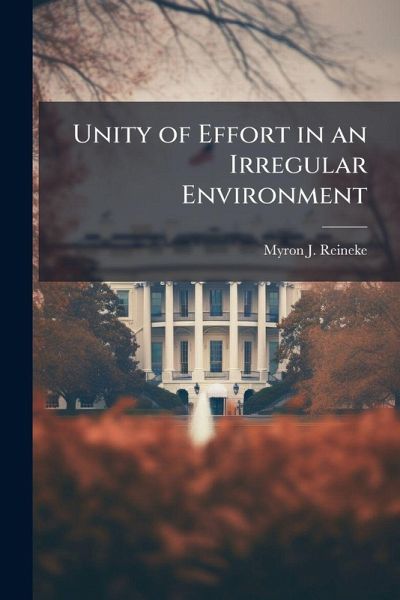
Unity of Effort in an Irregular Environment

PAYBACK Punkte
8 °P sammeln!
The United States today finds itself in an era of persistent irregular conflict, the root cause of which may be illegitimate governance within failed or failing states. The resulting instability will likely require future U.S. military and civilian agency intervention to assist host nations to build capacity and maintain legitimacy in the eyes of their populations. Success in these irregular environments will require operating "grand strategically," integrating the effects of all elements of national power into one coherent strategy under the direction of a single leader. A combination of secu...
The United States today finds itself in an era of persistent irregular conflict, the root cause of which may be illegitimate governance within failed or failing states. The resulting instability will likely require future U.S. military and civilian agency intervention to assist host nations to build capacity and maintain legitimacy in the eyes of their populations. Success in these irregular environments will require operating "grand strategically," integrating the effects of all elements of national power into one coherent strategy under the direction of a single leader. A combination of security concerns and a lack of expeditionary civilian capacity will require the military to assume responsibility for stability tasks better suited to civilian agencies. However, current laws mandate parallel civilian and military chains of command that separate de facto responsibilities from necessary authorities to direct the activities of all elements of statecraft toward the accomplishment of national security objectives. This separation makes it impossible to operate in a "grand strategic" manner as demanded by the character of irregular warfare. In order to improve unity of effort among USG departments and agencies conducting stability operations in a specific theater of action, the President should empower the military joint force commander to coordinate all aspects of the USG effort until the security environment and civilian capacity allow transition to civilian leadership. This work has been selected by scholars as being culturally important, and is part of the knowledge base of civilization as we know it. This work was reproduced from the original artifact, and remains as true to the original work as possible. Therefore, you will see the original copyright references, library stamps (as most of these works have been housed in our most important libraries around the world), and other notations in the work. This work is in the public domain in the United States of America, and possibly other nations. Within the United States, you may freely copy and distribute this work, as no entity (individual or corporate) has a copyright on the body of the work. As a reproduction of a historical artifact, this work may contain missing or blurred pages, poor pictures, errant marks, etc. Scholars believe, and we concur, that this work is important enough to be preserved, reproduced, and made generally available to the public. We appreciate your support of the preservation process, and thank you for being an important part of keeping this knowledge alive and relevant.



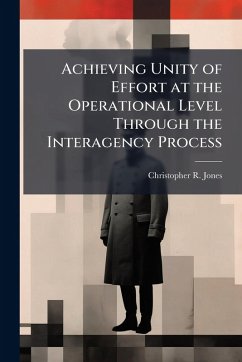

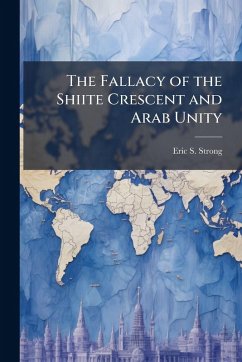

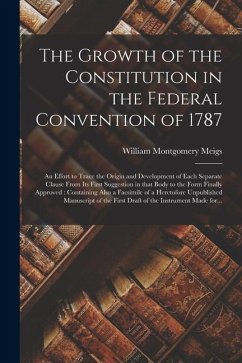
![The Geographical Unity of the British Empire [microform] Cover The Geographical Unity of the British Empire [microform]](https://bilder.buecher.de/produkte/65/65553/65553930n.jpg)
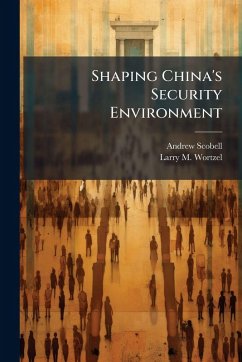
![The Struggle for Imperial Unity [microform]: Recollections & Experiences Cover The Struggle for Imperial Unity [microform]: Recollections & Experiences](https://bilder.buecher.de/produkte/66/66141/66141101n.jpg)
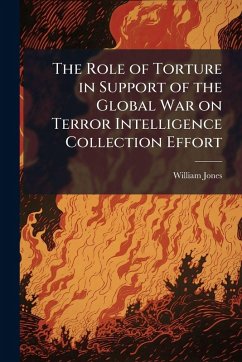
![Imperial Federation [microform]: the Problem of National Unity Cover Imperial Federation [microform]: the Problem of National Unity](https://bilder.buecher.de/produkte/66/66134/66134839n.jpg)